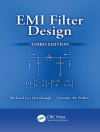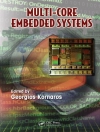This book covers the various advanced reciprocating combustion engine technologies that utilize natural gas and alternative fuels for transportation and power generation applications. It is divided into three major sections consisting of both fundamental and applied technologies to identify (but not limited to) clean, high-efficiency opportunities with natural gas fueling that have been developed through experimental protocols, numerical and high-performance computational simulations, and zero-dimensional, multizone combustion simulations. Particular emphasis is placed on statutes to monitor fine particulate emissions from tailpipe of engines operating on natural gas and alternative fuels.
विषयसूची
Cyclic Variations in Dual Fuel Combustion Engines.- Partially Stratifed Combustion of Natural Gas: From Fundamentals to Engine Applications.- HCCI in Dual-Fuel Diesel-Methane Combustion: the combined effect of injection and engine parameters.- Advanced Natural Gas Combustion Concepts.- Natural gas for high efficiency engines and future engine concepts.- A Review of Residential and Commercial Scale Natural Gas Powered Micro-Combined Heat and Power Systems.- Natural Gas Dual Fuel Engines.- Effects of EGR on engines fuelled with natural gas and natural gas/hydrogen blends.- Dual fuel (Natural Gas-Diesel) for light-duty industrial engines: a numerical and experimental investigation.- Emission after treatments for Advanced NG engines.- On Solving Engine Control Challenges of Natural Gas Engines Subject to Varying Fuel Compositions.- Modeling of Direct Gas Injection through a Poppet-type Outwardly opening Injector in Internal Combustion Engines.- Advanced CFD analyses for the design of innovative and dedicated NG engines.- Development of RCCI CNG-diesel concept for light-duty engines: Comprehensive Analysis of the Influence of Design and Calibration Parameters on Performance and Emissions.- Natural Gas Composition Variation: How to Avoid Knock While Maintaining Vehicle Power and Torque Requirements.- Advanced Combustion in Natural Gas Engines for Transportation and Power Generation.
लेखक के बारे में
Kalyan Kumar Srinivasan is an Associate Professor in the Department of Mechanical Engineering, the University of Alabama, USA. He completed his MS and Ph D from the University of Alabama in 2002 and 2006, respectively. His interests include Research and development of novel low temperature combustion concepts to minimize pollution formation and increase thermal efficiency of internal combustion engines for transportation, development of Laser-based diagnostics to measure temperature and species in open flames and internal combustion engines, investigation of energy destruction in combustion and thermodynamic processes and combined first and second law analyses to design/analyze bottoming. He has authored 1 book chapter, 20 conference papers and more than 35 journal articles.
Avinash K Agarwal is a Professor in the Department of Mechanical Engineering in Indian Institute of Technology Kanpur. His areas of interest are IC engines, combustion, alternative fuels, conventional fuels, optical diagnostics, laser ignition, HCCI, emission and particulate control, and large bore engines. He has published 24 books and 230+ international journal and conference papers. Prof. Agarwal is a Fellow of SAE (2012), ASME (2013), ISEES (2015) and INAE (2015). He received several awards such as Prestigious Shanti Swarup Bhatnagar Award-2016 in Engineering Sciences, Rajib Goyal prize-2015, NASI-Reliance Industries Platinum Jubilee Award-2012; INAE Silver Jubilee Young Engineer Award-2012; SAE International’s Ralph R. Teetor Educational Award-2008; INSA Young Scientist Award-2007; UICT Young Scientist Award-2007; INAE Young Engineer Award-2005.
Sundar Rajan Krishnan is an Associate Professor in the Department of Mechanical Engineering in the University of Alabama, USA. He received his MS and Ph D in Mechanical Engineering from the University of Alabama in 2001 and 2005 respectively, and has subsequently worked in Argonne National Laboratory (USA), Mississippi State University (USA) and University of Rome (Italy). His research interests include performance and emission analysis of internal combustion engines, advanced combustion strategies and developing alternative fuels and waste energy recovery. He has authored 7 technical reports, 20 conference papers and 35 journal articles.
Vincenzo Mulone is an Associate Professor in the University of Rome ‘Tor Vergata’, from where he has also done his Ph D. His research activities are mainly concerned with the fluid dynamics of energy conversion processes and their impact on environment, especially focusing on the analysis of internal combustion engines, aftertreatment components and systems, fuel cells and renewables. He has authored more than 100 publications.












